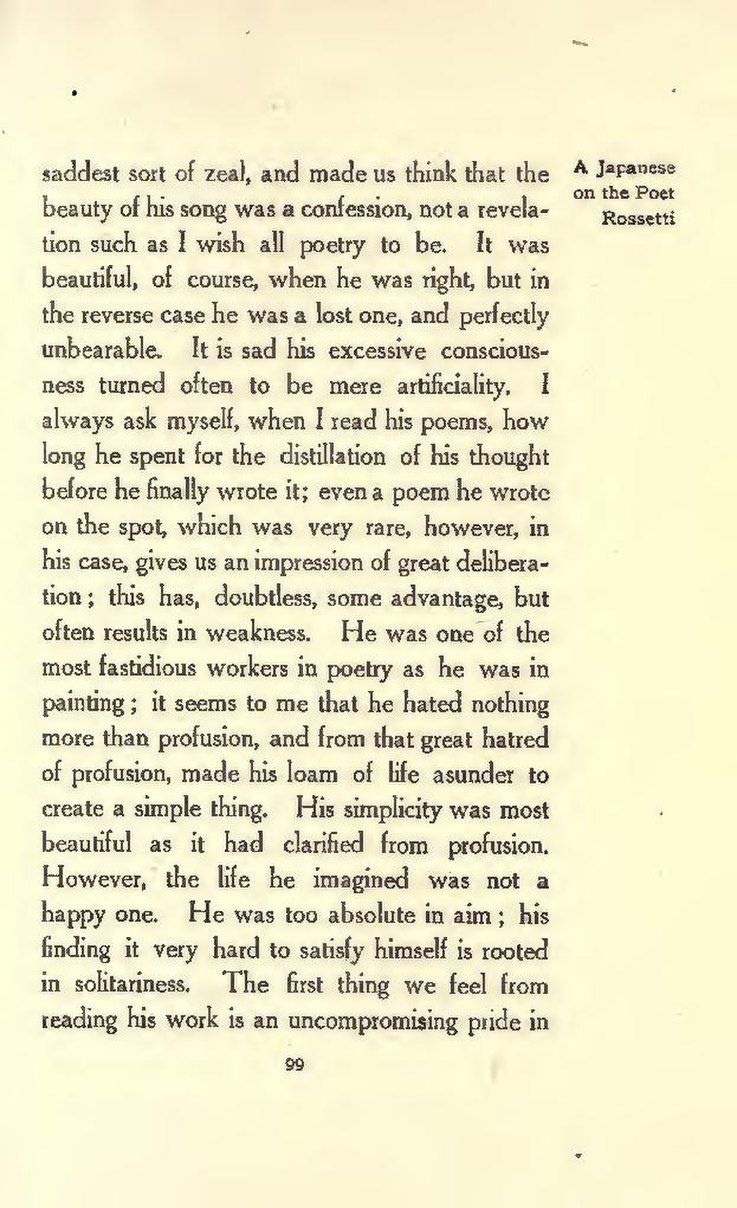saddest sort of zeal, and made us think that the beauty of his song was a confession, nota revelation such as I wish all poetry to be. It was beautiful, of course, when he was right, but in the reverse case he was a lost one, and perfectly unbearable. It is sad his excessive consciousness turned often to be mere artificiality. I always ask myself, when I read his poems, how long he spent for the distillation of his thought before he finally wrote it; even a poem he wrote on the spot, which was very rare, however, in his case, gives us an impression of great deliberation; this has, doubtless, some advantage, but often results in weakness. He was one of the most fastidious workers in poetry as he was in painting; it seems to me that he hated nothing more than profusion, and from that great hatred of profusion, made his loam of life asunder to create a simple thing. His simplicity was most beautiful as it had clarified from profusion. However, the life he imagined was not a happy one. He was too absolute in aim; his finding it very hard to satisfy himself is rooted in solitariness. The first thing we feel from reading his work is an uncompromising pride in
